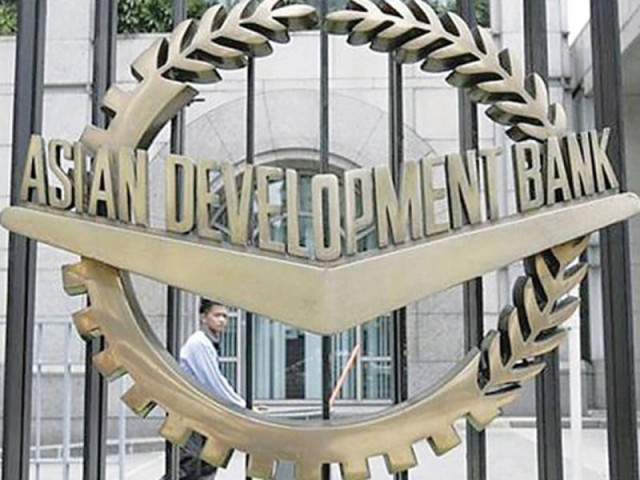Programme loans resumed: ADB approves $400m for push in energy reform
Remaining $800m depends on efforts to end subsidy, ensure accountability.

The ADB had approved the $2.1 billion Accelerating Economic Transformation Programme in September 2008. PHOTO: FILE
The Asian Development Bank (ADB) approved on Thursday release of $400 million as part of its five-year $1.2 billion loan programme for energy sector reforms but linked the remaining amount with Pakistan’s ability to withdraw power subsidies and ensure accountability in the sector.
This is the first programme loan that the Manila-based lending agency has approved in the last six years and the first tranche cleared after a gap of four years.
It is expected to release the entire $400 million next week following a signing ceremony between both sides, scheduled for Monday.
Last time, the ADB had approved the $2.1 billion Accelerating Economic Transformation Programme in September 2008. But the programme was suspended after disbursement of two installments, the last came in 2010, due to the previous government’s inability to meet conditions attached with the loan.

The fresh endorsement comes at a time when the government is planning to introduce a new schedule of hours-long power outages, as it struggles to meet soaring demand with rising temperature.
Owing to delay in undertaking critical reforms, the PML-N government is going to spend over Rs270 billion on power subsidies against budgetary allocation of Rs220 billion for current fiscal year 2013-14, according to officials of the Ministry of Finance.
The loan is aimed at supporting ongoing reforms to tackle the country’s energy crisis which has crippled industries and caused social unrest, according to a handout issued by the ADB.
It added the full programme was expected to total $1.2 billion, with future amounts subjected to further discussions between the ADB and the government.
Called the Sustainable Energy Sector Reforms Programme, the loan will support the overhaul of existing tariffs and subsidies as the government moves to eliminate subsidies by 2016, except for low-income consumers. It will also back reforms to reduce power losses, encourage more involvement of the private sector and improve transparency and accountability.
To supplement the ADB’s first tranche, Japan would provide $52 million, said a statement issued by the Japanese embassy in Islamabad. The World Bank is also expected to give $600 million for energy reforms.
The multilateral lenders had suspended programme lending to Pakistan during the PPP’s tenure. However, project lending, which is mainly for procurement of goods, continued during the five-year period.
According to the ADB documents, the energy reforms will be implemented over a period of five years, with a sub-programme for each year according to the annual budget schedule. It will manage tariffs and subsidies.
For that, the government would have to announce “clear policies on tariffs and subsidies that are targeted (only) at low-income customers”, the documents showed.
Furthermore, the government will have to ensure policy implementation through National Electric Power Regulatory Authority (Nepra) rules and guidelines, reduce discretionary policy decisions and the lag in tariff approval and implementation.
As part of reforms, the government will reduce line losses and improve collection of electricity bills – the two root causes of the never-ending circular debt.
It will make sure that new power generation plants are cost-effective. It has also promised to privatise power distribution companies besides improving their performances.
Lastly, the government will improve the accountability mechanism and ensure transparency in the power sector – the benchmarks that never remained priority of any government.
Pakistan’s economy had been devastated by chronic power shortages which were estimated to have slowed growth by at least 2 percentage points a year, said the ADB.
Private investment had been sharply reduced and power sector subsidies had caused high fiscal deficits and elevated public debt, it added.
Published in The Express Tribune, April 25th, 2014.
Like Business on Facebook, follow @TribuneBiz on Twitter to stay informed and join in the conversation.




1733130350-0/Untitled-design-(76)1733130350-0-208x130.webp)













COMMENTS
Comments are moderated and generally will be posted if they are on-topic and not abusive.
For more information, please see our Comments FAQ